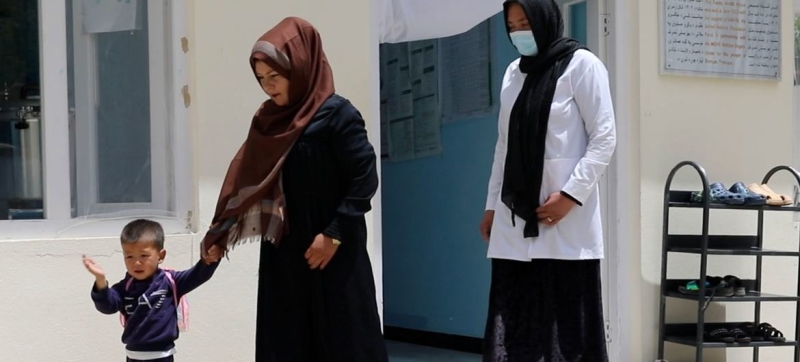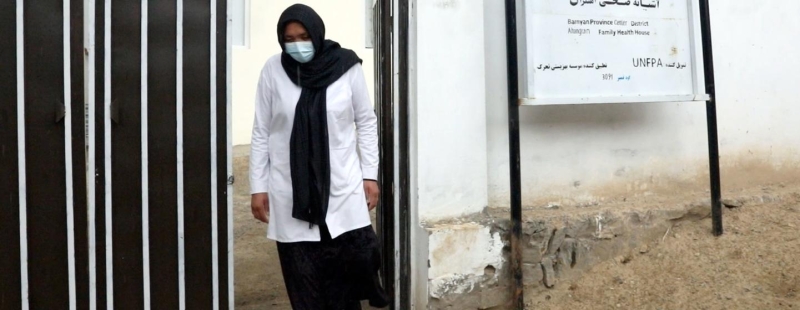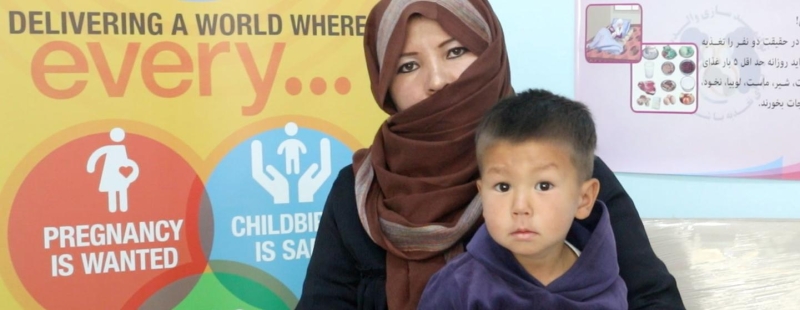
Midwife Mariza Ahmadi helped Afghan woman Sugra give birth to a healthy baby boy. Afghan midwife: ‘I stayed because I was needed here’ Women
Midwife Mariza Ahmadi was working at the Akhangaran Family Health Centre in Bamyan province, Afghanistan, when the Taliban seized power in Afghanistan in August 2021, making life almost unbearable for millions of people – especially women and girls. ‘If I had left, the mother or the newborn baby could have died,’ Ahmadi told the United Nations Population Fund (UNFPA).
According to her, due to the unstable situation, medical facilities were closing, and expectant mothers did not know where to turn for help.
At the time, 29-year-old Sugra was nine months pregnant. “I went to the regional hospital in Bamyan city, but the staff told me that they were not sure whether it would be open in the coming days,” she recalls.
Emergency care
Feeling the first pains of labor and worried about the security situation, Sugra decided to go to her father in the village of Akhangaran. Together with her husband and a relative, she had to shake for three hours in the back of a truck to get to the village. “I was afraid that I would go into labor right there,” the woman recalls.
Upon reaching the village, she hurried to the Akhangaran Health Center. The facility, the only one available in the area, is supported by UNFPA.

Midwife Mariza Ahmadi works at the Ahangaran Family Health Center in Afghanistan’s Bamyan province
“The birth was difficult. The midwife said that if the baby was not born by 4 p.m., I would have to be taken to the regional hospital,” the young mother said.
The local health center did not have the necessary equipment to deal with possible complications or to perform a cesarean section. However, the hospital in Bamyan said that all the medical staff had left. The only option was to go there with a midwife who could deliver the baby.
Fortunately for Sugra, there were no complications in the end. “The birth was painful, but I was happy that we managed it at the family health center,” she said. “If this clinic had not existed then, God knows what could have happened to me.”
Preventing Maternal Mortality
Sugra’s story ended well thanks to Ahmadi’s help. That same week, the midwife helped three more women give birth who had to leave from other parts of Bamyan province.
“The situation was difficult then, but this clinic never closed for a single day,” Ahmadi said. “I was afraid too, but if I quit my job, all our efforts to prevent maternal and infant mortality would be wasted.”
Read also:
Low Pay for Vital Jobs: UN Calls for Investment in Midwifery
Afghanistan has long had one of the highest maternal mortality rates in the world, with one woman dying every hour from complications of pregnancy and childbirth, according to UNFPA. These deaths could largely be prevented with skilled obstetric care.
The situation has become even more dangerous due to the fact that the de facto authorities have sharply restricted women’s ability to work and travel without a man.
“I stayed because people needed my support and I had to help them in such critical conditions,” Ahmadi explained. “In the four years that I have been working here, there has not been a single case of maternal death in this clinic.”
Population Needs
Sughra’s son Farhad recently turned three. “When he grows up, I hope he can study to build a good future for himself and the people around him,” the mother said.

Sughra’s son Farhad recently turned three.
Midwives can provide almost all essential reproductive, maternal, child and adolescent health services. Afghanistan currently has a shortage of 18,000 midwives.
In 2021, UNFPA supported about 70 family health centers in Afghanistan. That number has now increased more than sixfold to 477. Since 2021, these clinics have helped more than 5 million people access critical health services, especially in remote and hard-to-reach areas of the country.
